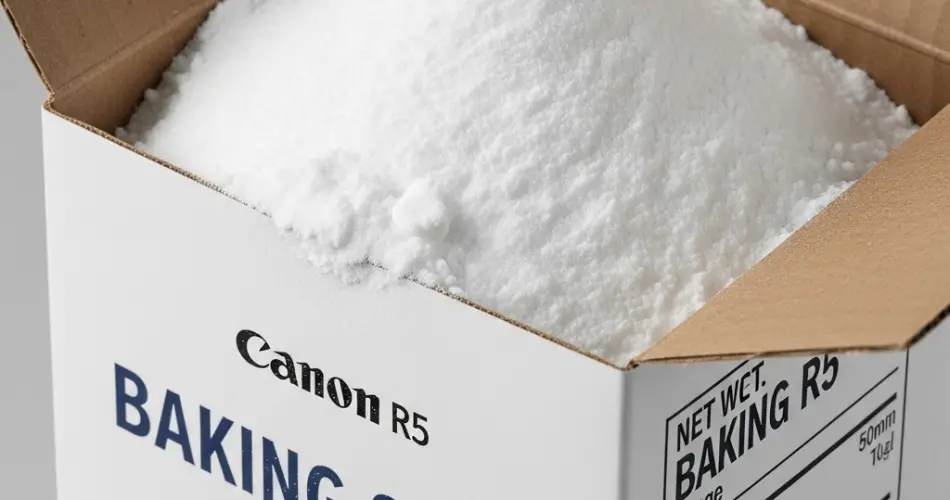Baking soda, or sodium bicarbonate, is a common household staple found in kitchens worldwide. But beyond its well-known uses in baking and cleaning, baking soda offers numerous surprising benefits in the garden. This affordable, non-toxic ingredient can help control pests, improve soil health, and boost plant growth naturally.
Here are 10 practical tips on how to use baking soda effectively in your garden to support healthier, more productive plants.
1. Control Powdery Mildew on Plants
Powdery mildew is a common fungal disease that appears as white, powdery spots on leaves and stems, often affecting cucumbers, squash, roses, and other plants. Baking soda creates an alkaline environment on plant surfaces that inhibits fungal growth.
How to use: Mix 1 tablespoon of baking soda, 1/2 teaspoon of liquid soap (a gentle dish soap), and 1 gallon of water. Spray the solution on affected plants every 7 to 14 days, especially during humid weather.
2. Deter Garden Pests Like Ants and Aphids
Baking soda can repel certain pests, including ants and aphids, which damage plants by feeding on their sap or protecting harmful insects like aphids.
How to use: Sprinkle baking soda around the base of plants or along ant trails to discourage their movement. For aphids, spray a diluted solution of baking soda and water directly on the leaves.
3. Improve Soil pH for Alkaline-Loving Plants
Some plants such as lilacs, clematis, and asparagus prefer slightly alkaline soil. If your garden soil is too acidic, baking soda can be used in small amounts to raise the pH temporarily.
How to use: Dissolve a teaspoon of baking soda in a gallon of water and apply to the soil around these plants every few weeks during the growing season. Avoid overuse as it can harm acid-loving plants.
4. Speed Up Composting
Baking soda helps balance the acidity in compost piles, speeding up the decomposition process and reducing odors.
How to use: Sprinkle a small amount (about 1/4 cup) of baking soda onto your compost heap occasionally to keep it balanced and odor-free.
5. Kill Weeds Between Patio Stones
Baking soda is an eco-friendly weed killer that works well on small, unwanted plants growing between cracks in pavement or garden paths.
How to use: Sprinkle baking soda directly on weeds growing in cracks, especially on sunny days. Repeat applications may be necessary.
6. Enhance Tomato Plant Health
Baking soda can help control fungal diseases in tomatoes such as early blight and prevent blossom end rot caused by fungal infection.
How to use: Use the same fungicidal spray mix as for powdery mildew (1 tablespoon baking soda per gallon of water with a few drops of soap). Spray tomato plants weekly during humid weather.
7. Freshen Up Your Garden Tools
Dirt and rust can build up on gardening tools, making them less effective and potentially spreading diseases.
How to use: Make a paste with baking soda and water, then scrub your tools to remove dirt and rust. Rinse and dry thoroughly afterward.
8. Neutralize Soil Odors
If your soil or compost has unpleasant odors due to anaerobic bacteria, baking soda can neutralize these smells.
How to use: Sprinkle a small amount of baking soda on the soil surface or compost, then mix gently. This helps reduce bad smells and keeps your garden pleasant.
9. Control Slugs and Snails
While baking soda isn’t a guaranteed slug killer, it can act as a mild deterrent.
How to use: Sprinkle baking soda around vulnerable plants or garden beds. The texture can discourage slugs and snails from crossing the barrier.
10. Make a Natural Insecticide Spray
Baking soda mixed with water and a few drops of liquid soap can be an effective insecticide against soft-bodied pests like aphids, spider mites, and whiteflies.
How to use: Mix 1 tablespoon baking soda, 1 teaspoon liquid soap, and 1 quart of water. Spray affected plants thoroughly, ensuring to reach the undersides of leaves. Test on a small area first to ensure plant safety.
Important Tips for Using Baking Soda in the Garden
-
Always test baking soda solutions on a small portion of the plant or soil first to check for any adverse reactions.
-
Avoid using baking soda excessively, as it can alter soil chemistry and harm sensitive plants.
-
Baking soda works best as a preventative measure rather than a cure for severe infestations or diseases.
-
Use natural or biodegradable liquid soaps when mixing baking soda sprays to minimize environmental impact.
Why Baking Soda Is a Gardener’s Ally
Baking soda is non-toxic, affordable, and widely available, making it an excellent addition to any gardener’s toolkit. It offers a range of benefits from pest control to soil health enhancement without resorting to harsh chemicals. Using baking soda wisely can help you maintain a healthier, more sustainable garden that thrives season after season.
Whether you want to control fungal diseases, deter pests, or keep your garden soil balanced, baking soda is a versatile and practical solution worth trying. Start experimenting with these simple tips today and enjoy a more vibrant and productive garden!



